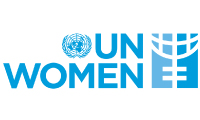Who WE Are
Yiaku Laikipiak Trust (YLT) was founded in the year 2000 and officially registered in the year 2003. Since inception, YLT’s long term priority is the revival of Yiaku language, Protection of Mukogodo Forest, Indigenous Knowledge and livelihood support for the Yiaku people.
The Yiaku People are a Cushitic tribe that migrated from Ethiopia in 14th Century and settled in Mukogodo Forest in Laikipia North District in Kenya. The Yiaku People are a minority indigenous community with a population of less than 4,000 people.
Yiaku Laikipiak Trust (YLT) was founded in the year 2000 and officially registered in the year 2003 as a self-help group under the societies Act of Kenya, however in 2009 it upgraded to a community trust. Yiaku Laikipiak Trust was formed from the necessity of exposing and addressing the need for recognition and assistance on ensuring survival of Yiaku indigenous peoples and local communities’ cultures and habitat.
Since inception, YLTs long-term priority is the revival of the Yiaku language, protection of Mukogodo forest ,indegenous knowledge transfer, livelihood support and civic education enhancementprograms. The Yiaku people are a Cushitic tribe that migrated from Ethiopia in the 14th century and settled in mukogodo in Laikipia North sub-county in Kenya. They are a minority indigenous community with a population of 6,000 people.
The Yiaku have maintained their culture, through bush meat is illegal and the Yiaku seized hunting, they have remained glued bee keeping , gathering and partial livestock herding. The Yiaku have lived in harmony with the forest time immemorial since their traditional practices do not encourage logging and the building of permanent shelters in the forest. They have sacred sites and shrines, ancestral clan caves and derive honey, wild fruits and vegetables from the forest.
YLT draws its membership majorly from the Yiaku community, however as the organization grows, it has included other indigenous people in its membership and areas of working to include the Maasai, turkana, pokot and the borana.
Since inception in 2000, YLT with support provided by various donors and partners has implemented several projects among the indigenous Yiaku community, indigenous peoples and pastoralist within the context of pastoralists livelihoods, environment, historical injustices, governance and development in Kenya and the prevailing attitudes towards minorities, indigenous peoples, pastoralists and pastoralism in general, policy and legal discourses and their impact on indigenous peoples, pastoralists and pastoralism social, cultural and economic preoccupations and integration of pastoralist voices within the policy and legal discourses with special emphasis on addressing indigenous people issues and concerns.
YLT has advocated for the articulation of indigenous peoples and marginalized/minority communities determined values, procedures and priorities up to the United Nations level by developing the Yiaku community Bio- cultural protocol (BCP). This instruments sets out a basic for catalyzing constructive and proactive responses to threats and opportunities posed by land and resource development, conservation, civic education and human rights, research and other legal and policy frameworks.
In general, YLT has been seeking to address not only the rights of indigenous peoples and pastoralist communities to a peaceful and productive future but also to inform governance ( decision making), development and exploitation/utilization of pastoralists lands and natural resources as a prerequisite to addressing these communities insecurity, in addition to the underlying issues that contribute to vulnerabilities such as lack of participation, social injustices, and marginalization that hold them back from realizing their full potential in all spheres of their existence.
It is therefore in this basis that in July 2022 with the support from Voice Kenya, YLT sought to access the impact of the activities undertaken within the duration of 2000 to date (2022) in order to provide an indication on the extent to which these activities have contributed in addressing the integration of the Yiaku community issues in the policy and legal discourse as well as equipping the Yiaku and pastoralists communities with the wherewithal to engage with duty bearers and other actors in addressing pressing issues relating to their livelihoods and well-being as well as overarching transformative development and threats posed by emerging trends of increasing frequency of drought, aridity, land degradation, climate change and natural resource competition.
YLT played an observer role in the just concluded general elections in Kenya 2022. Based on the results of the post-election review and evaluation, the process was generally peaceful however there was great voter apathy and serious gaps that need to be addressed. Yiaku-Laikipiak Trust is on the process of developing a five year comprehensive civic education program to address these issues. In this spirit therefore, Yiaku-Laikipiak Trust is looking for a five year partnerships to enable the organization successfully undertake/implement this project.
Our Vision
To see a society whereby the rights of indigenous minority communities are respected and their culture, habitat and environment is preserved for posterity.
Mission Statement
Creating an environment for the Yiaku to enjoy their fundamental rights hence improved livelihoods.
Our Vision
To raise consciousness on the Phenomenon of Climate Change
To organize and train Yiaku Peoples on Civic, Human and Indigenous People’s Rights at the National, Regional and International levels aimed at protecting and advancing women’s rights and interests.







